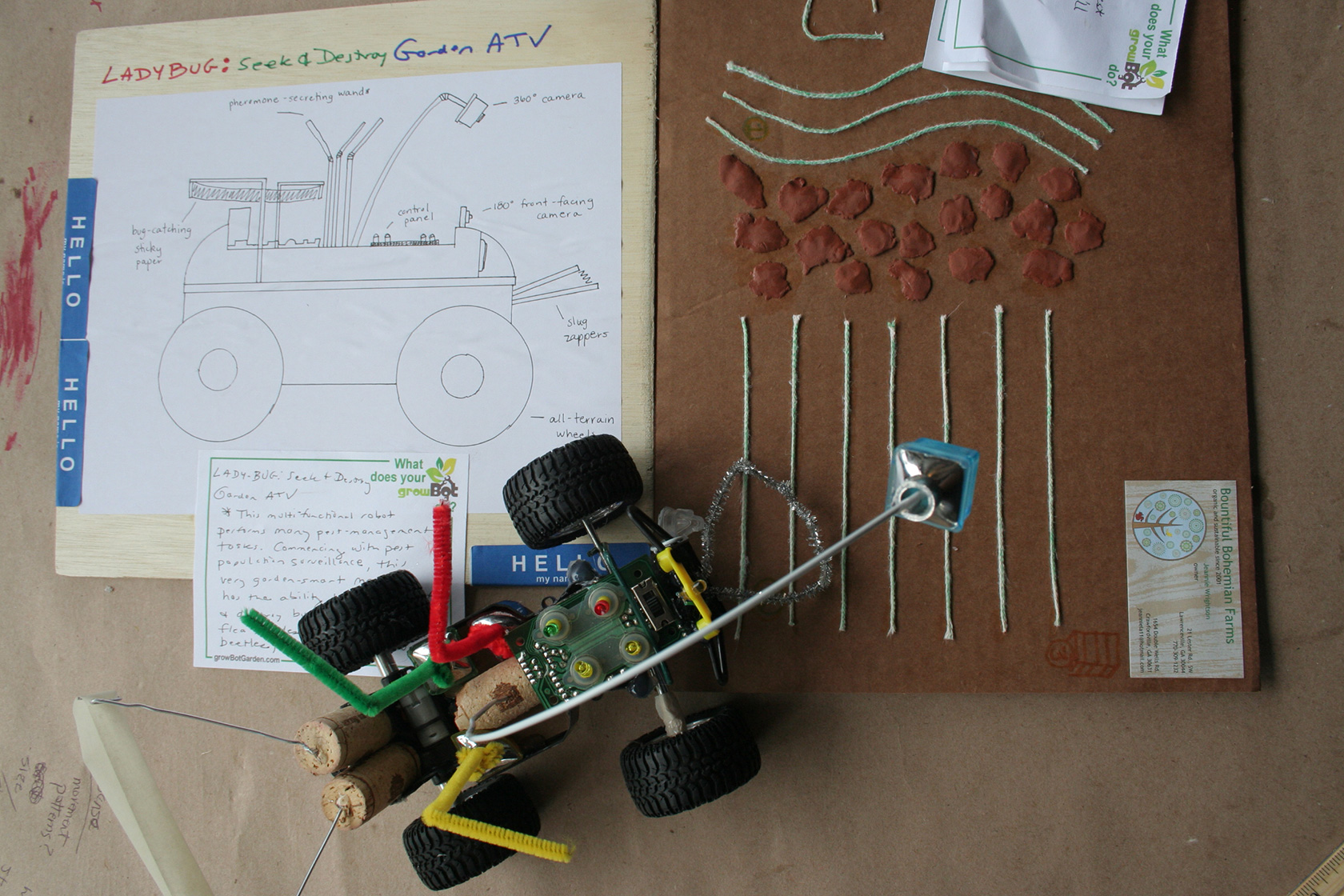
Over the past 100 years, the practices of agriculture have been radically altered in Western societies, spurred by development and application of a host of technologies designed to automate and monitor food production. Recently, however, many have called attention to the shortcomings of mainstream farming endeavors — large-scale agri-business may be producing more food, but the food itself is lacking in nutrition and the environment is suffering from these very farming practices.
Engineering and design played a role in advancing the culture and practices of agri-business by producing products, systems, and services to advance and support large-scale corporate farming. The question we ask is, Can design and engineering now play a role in shifting us towards more sustainable modes of agriculture? What kinds of products, services and systems would need to be designed and engineered to enable that subversion and shift? How will technologies of automation and monitoring need to be refigured for these contexts – if indeed they are still at all useful? The growBot garden project explores these questions by bringing together designers, artists, farmers and other food producers to ask: How might robotics and sensing technologies be used in support of local small-scale agriculture?
The Growbot Garden project was structured around a series of public and participatory workshops that brought together diverse constituencies to critically think about, discuss, and debate, agricultural technologies for small-scale agriculture. The workshops drew equally from practices of participatory design, critical design, social practice art, and DIY culture. More than a discursive platform, the workshops were design platforms: opportunities to collectively make speculative representations and prototypes of possible futures. These representations and prototypes were documented and shared through public forums to provoke consideration of new assemblages that might emerge at the intersection of technology and agriculture.
The project included multiple site visits to farms and dairies in the Atlanta region, two outreach events and three design workshops in Atlanta, and 10 days of workshops and exhibition as part of the 2010 01SJ Biennial in San Jose, CA.